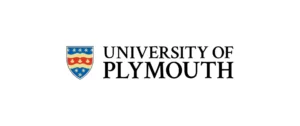The UK’s education system is world-renowned, attracting both domestic and international students to its universities. But here’s a question that looms large: Are there fully funded scholarships—covering tuition, living expenses, and more—for bachelor’s and master’s students in the UK in 2025? The answer, backed by data from GOV.UK, UKRI, and top institutions, is a resounding no—whether you’re a UK resident or an international student. Fully funded opportunities exist only for doctoral (PhD) students, and even then, they’re intensely competitive. For undergrads and master’s students, support is limited and partial. This blog dives into the facts, lists every available option, and leaves no gaps—helping you navigate the UK funding landscape with clarity.
No Fully Funded Programs for Bachelor’s or Master’s—UK or International
Let’s be crystal clear: no comprehensive, widely available fully funded programs exist in the UK for bachelor’s or master’s students in 2025, regardless of nationality. “Fully funded” means 100% coverage of tuition, living costs, and additional expenses—something absent at these levels. Here’s the breakdown:
- UK Domestic Students: The government provides loans, not grants. GOV.UK (2025) offers tuition loans (£9,250/year) and maintenance loans (£4,767–£13,348/year, income-based) for undergrads, and a £12,471 total loan for master’s—repayable, not free. No UKRI or national scheme fully funds these degrees.
- International Students: Prestigious options like Chevening (master’s) and Commonwealth (master’s/PhD) are fully funded but exclusive to non-UK residents from specific countries—and exclude undergrads. University-specific awards (e.g., Bristol’s Think Big) offer partial aid, not full coverage.
- Evidence: UKRI’s £8 billion budget (2024–25) targets PhD research, not taught degrees. GOV.UK’s funding pages list no fully funded bachelor’s/master’s schemes for UK or international students—only loans or competitive, limited scholarships.
The UK reserves “fully funded” for PhD.s, leaving bachelor’s and master’s students to combine other options.

Doctoral Funding: Fully Funded, Fiercely Competitive
PhD students—UK and international—can access fully funded programs, but the bar is sky-high:
- UKRI Studentships: Covers tuition (£4,786/year), stipend (£19,237 outside London, £21,500 in London, UKRI 2025), and research costs. Open to UK residents (70%) and internationals (30% cap). HESA (2024) shows 40,000 applicants for ~10,000 spots—a 25% success rate.
- Conditions: Requires a 2:1 bachelor’s (often a master’s), a strong research proposal, and supervisor approval. Internationals need IELTS 6.5+ for visas.
- Other Sources: Wellcome Trust, Leverhulme, and uni-specific PhD grants (e.g., Imperial’s President’s Scholarship) offer full funding—tuition, stipend (£21,000+), extras—but acceptance rates dip to 10–20% (e.g., Oxford, 2024).
- International Exclusives: Commonwealth PhD Scholarships (developing countries) and Gates Cambridge (all nationalities) are fully funded but globally competitive.
PhDs get the full package—unlike bachelor’s or master’s—but only a fraction cut.
Limited Support Options for Bachelor’s and Master’s
Fully funded dreams fade at bachelor’s and master’s levels, but support exists—partial, conditional, and far from comprehensive. Here’s every option for UK and international students in 2025, with no omissions:
For UK Domestic Students
-
Government Loans
- Bachelor’s: Tuition loan (£9,250/year) + maintenance (£4,767–£13,348/year, income-based, GOV.UK 2025). Total cost: £21,250–£24,250/year. Repayable at 9% over £25,000 earnings.
- Master’s: £12,471 total loan, spread over 1–2 years. Total cost: £27,000–£40,000. Repayable.
- Conditions: UK residency, first degree (bachelor’s), no prior master’s. Debt, not funding.
-
University Bursaries
- Oxford Crankstart: £5,800/year (income <£32,500).
- UCL Bursary: £1,000–£3,000/year (income <£42,875).
- Edinburgh Access: £1,000–£3,900/year (low-income).
- Conditions: UK resident, academic merit (e.g., AAA A-levels), income thresholds. Covers ~20–30% of costs (HESA, 2024).
-
Subject-Specific Grants
- NHS Bursary: Tuition + £1,000–£5,000/year (nursing, midwifery, NHS BSA 2025). NHS work commitment.
- PGCE Bursary: £10,000–£29,000 (shortage subjects like physics, GOV.UK). Teaching pledge post-master’s.
- Conditions: UK resident, specific courses, career commitment.
-
Charitable Trusts
- Leverhulme Trade Charities: Up to £5,000 (family in trade).
- Royal Society Grants: £1,000–£3,000 (science students).
- Conditions: Niche eligibility, UK residency, small-scale aid.
For International Students
-
University Scholarships
- Sheffield International Merit: £10,000/year (undergrad, 75 awards, Sheffield 2025).
- Bristol Think Big: £6,500–£13,000/year (undergrad), £13,000–£26,000 (master’s).
- Westminster Vice-Chancellor: Full tuition + living (undergrad, developing countries, rare).
- Conditions: Overseas fee status, high merit (e.g., A*AA), partial coverage (£27,000–£50,000/year total cost).
-
Government-Backed Awards
- GREAT Scholarships: £10,000 toward master’s tuition (18 countries, British Council 2025).
- Chevening: Full tuition + stipend (master’s, 1 year, 150+ countries).
- Commonwealth Master’s: Tuition + living (Commonwealth developing countries).
- Conditions: Nationality-specific, excludes undergrads (except in rare cases), competitive.
-
Niche Programs
- Women in STEM (British Council): Tuition + stipend (master’s, select unis). Conditions: Female, STEM focus.
- Sanctuary Scholarships: Tuition + £5,000/year (asylum seekers, e.g., Glasgow). Conditions: Refugee status.
The Funding Gap: Numbers Don’t Lie
- UK Costs: Bachelor’s (£21,250–£24,250/year, 3 years = £63,750–£72,750); master’s (£27,000–£40,000 total). Max support (£13,348 loan or £5,800 bursary) leaves £10,000–£20,000/year unmet.
- International Costs: £15,000–£35,000 tuition + £12,000–£15,000 living = £27,000–£50,000/year. Scholarships (£10,000–£26,000) fall short by £10,000+ annually.
- PhD Benchmark: £70,000–£80,000 over 3 years, fully covered—unmatched below doctoral level.
Why is there No Full Funding for Bachelor’s/Master’s?
- Policy: The UK sees taught degrees as personal investments (loans for UK students, high fees for internationals); PhDs drive national research (UKRI focus).
- International Strategy: Fully funded schemes (e.g., Chevening) attract global talent, not undergrads or UK residents broadly.
- Budget: £8 billion UKRI funding (2024–25) prioritises PhDs over bachelor’s/master’s.
What This Means for You
In 2025, fully funded UK scholarships are a PhD-only privilege—competitive but real. Bachelor’s and master’s students—UK or international—face loans, partial bursaries, or rare awards. No program covers it all at these levels. Dig into GOV.UK, UKRI, or uni websites for updates, and apply early for what’s out there. The UK’s education is elite, but funding it? That’s your challenge to conquer.










2 responses
Hello I’m interested to study PGCE course
Hello, you can book your free consultation here: https://universitio.com/free-consultation